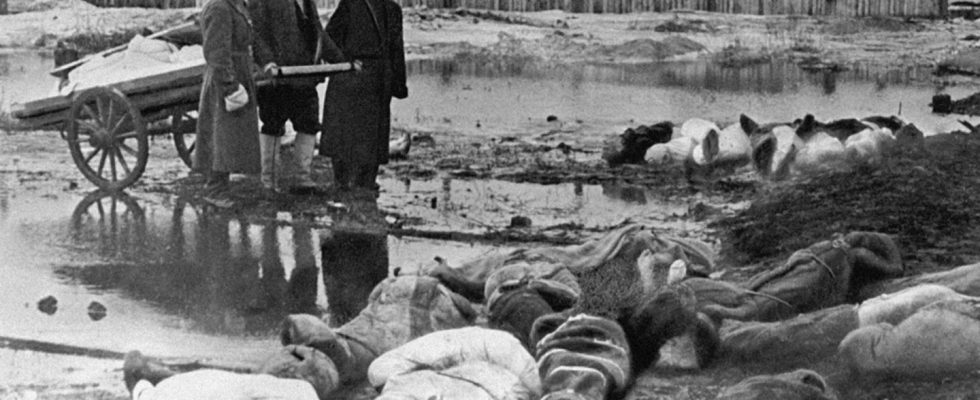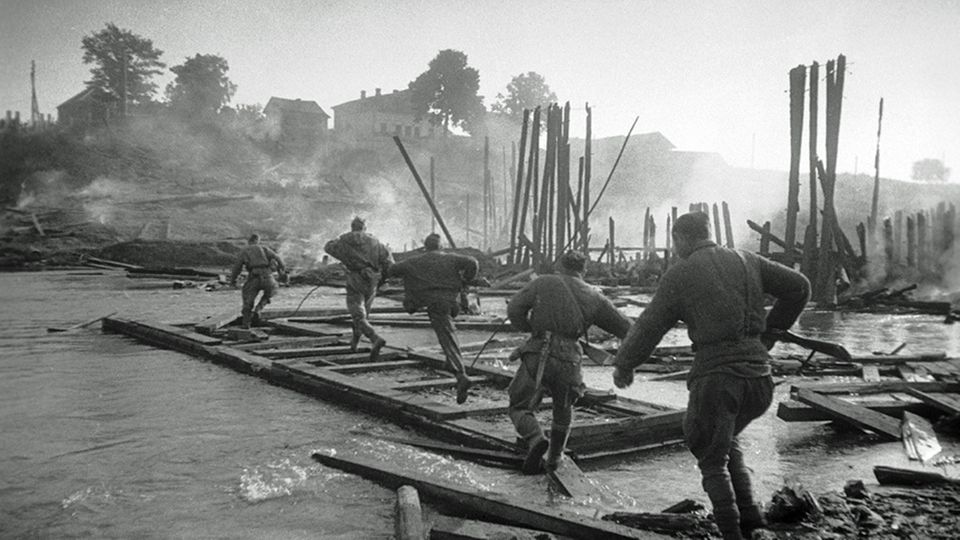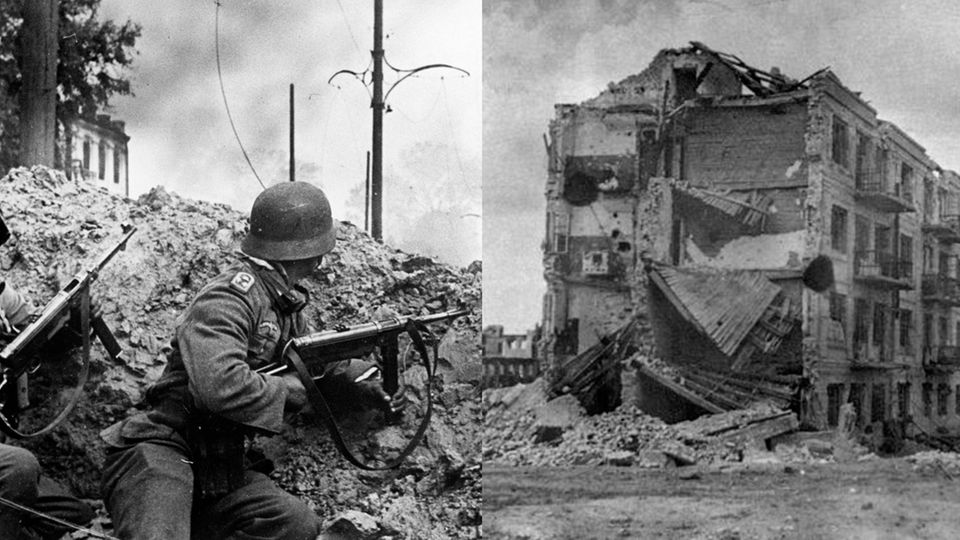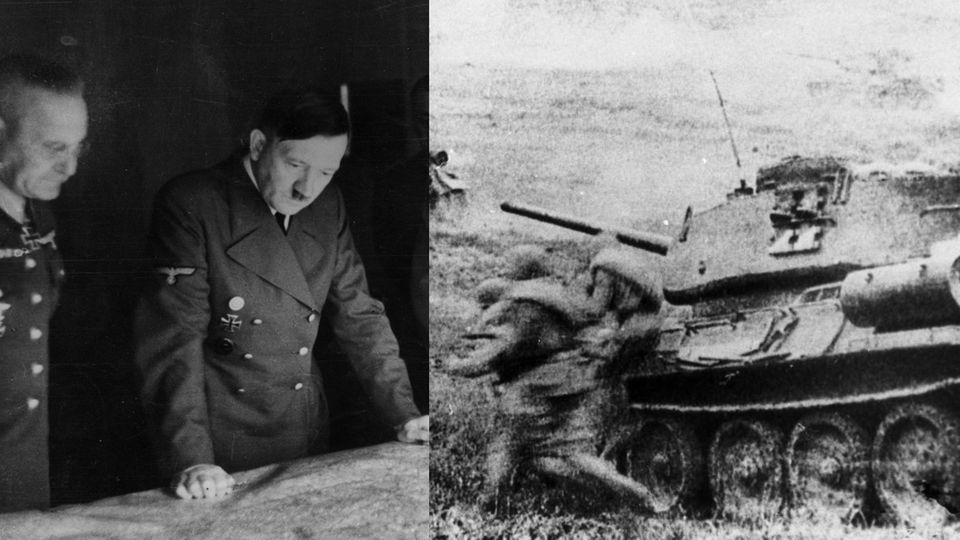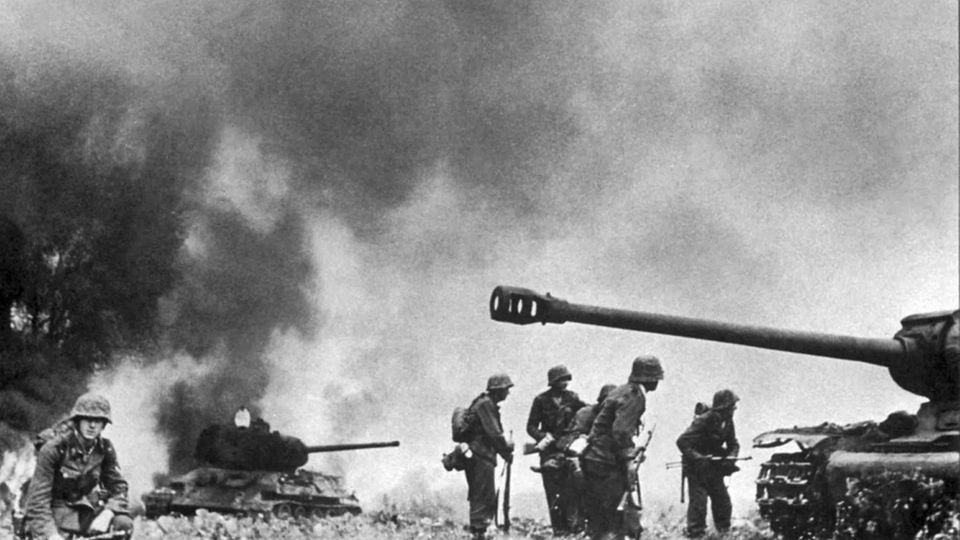Second World War
Siege of Leningrad – this is how Putin wants to exploit German crimes for his war
Starvation dead are buried in the city.
© Commons
Hitler wanted to starve the residents of Leningrad during the war. Russia now classifies the siege of Leningrad as genocide. We ask: What does Putin want to achieve with this and what is the truth behind the accusation?
German and Finnish troops and a division of Spanish volunteers closed the city – at that time Leningrad, today St. Petersburg again – for 871 days. The siege lasted from September 8, 1941 to January 27, 1944. In Germany, the fighting for Leningrad is in the second line, perception is dominated by the Battle of Stalingrad. In Russia, these 871 days are much more present, because Leningrad represents the suffering of the people.
Hitler’s racial hatred was evident in Leningrad
What makes this siege different from others? From the start, Hitler decided not to take the city, which probably would have been possible amid the collapse of the Soviet defenses in 1941. The German army should not be burdened with supplying the residents. In addition, Lenin’s city was considered a communist stronghold. The declared goal was to cut off the people of Leningrad from all supplies and let them starve. If civilians tried to surrender to the Germans, they should be sent back.
Not a clean Wehrmacht
In Leningrad, a few months after the beginning of the attack on the Soviet Union, the deeply criminal character of the Nazi regime and the Wehrmacht’s willing assistance in these crimes became apparent. It also became clear that the German leadership’s extermination fantasies extended not only to the Jews, but also to Soviet people as such. The Axis forces never managed to completely encircle the city, but around 1.1 million people died, almost all of them starving. There are countless, shocking testimonies of the city’s death. The German government classifies the siege as a war crime, the Russian government now classifies it as a genocide.
Research assumes a war of annihilation in the East
This cannot be disputed in this matter. The image of the supposedly “clean” Wehrmacht has long been clouded over. The narrative of the 1960s that only the SS units were involved in the crimes and that the Wehrmacht officers either didn’t know about them or couldn’t do anything about it and were in no way involved has died out with the generation of perpetrators. The prevailing view among researchers was that the campaign in the East was aimed at enslaving and exterminating the local population in order to create living space for the Aryan Germans. From the beginning, the campaign in the East was conceived as an “ideological worldview and racial-biological war of extermination,” according to the website of the “German Historical Museum.”
This is exactly how international criminal law defines genocide. It is characterized by the intention to destroy, directly or indirectly, “a national, ethnic, racial or religious group as such, in whole or in part.” All of this applies to the war of annihilation in the East in general and the siege of Leningrad in particular.
Genocide would be expensive
The German governments deliberately avoided classifying the acts on the Eastern Front as genocide. Prominent events are likely to take place not only in Russia, but also in Belarus, Ukraine and Poland. For example, the suppression of the Warsaw Uprising.
German hesitation has little to do with the current political situation. It’s simply about money, Germany doesn’t want to have this debate for fear of being held financially liable for crimes from the Second World War. Poland alone is demanding 1,300 billion euros in compensation for war damage. The German government then always argued that reparations for the war had already been paid. But the term “genocide” is not covered by the post-war treaties. Simply put: genocide is not included in aggressive war. The argument for not wanting to pay then becomes even more difficult. In addition, the German government has officially recognized the genocide of the Herero and Nama people in the former German South West Africa as genocide and has paid compensation. The Russian move is aimed at this legal gap.
Battle in the information space
What does Putin want to achieve with this? The Kremlin knows that the German Chancellor will never go to St. Petersburg to kneel in the current situation. And also that it is very unlikely today and in the future that Berlin will pay any compensation for German crimes – if only because these payments far exceed Germany’s financial strength.
The new battle for Leningrad is taking place in the information space. Here Putin can push Germany ahead of him. Berlin takes on a thankless role when an obvious crime cannot be named for tactical and financial reasons. On the other hand, it will be easy for Russia to obtain reports from international experts on the nature of the siege. The Kremlin PR will probably exploit the news of German crimes with all their terrible individual stories in the Global South. The obvious spin: “The Germans did the same thing with us in the East that the colonial powers did with you.”
Russia as a victim
In Russia itself, the “Siege of Leningrad” reinforces the narrative of selling the war in Ukraine as “Great Patriotic War 2.0”. According to the Kremlin, Russia did not invade its neighboring country. No, intervention had to be done before Ukraine could become a staging area for Nazis and NATO. In Russia people believe in this narrative. On the anniversary of the end of the blockade, German journalists interviewed old women in St. Petersburg. They proudly said to the camera that as children they survived hunger and the German bombs and are now doing everything they can to ensure that the soldiers, the “boys”, in Ukraine are well looked after. There is also a very personal relationship with the Kremlin ruler.
On the 70th anniversary of the end of the war in 2015, Putin wrote the text: “Life is a simple and cruel thing.” And in it he summarizes his family’s memories; he himself was born in 1953, after the war. Putin’s father fought near Leningrad, in the infamous Nevsky bridgehead, and was seriously wounded. His older brother died of diphtheria as a child as a result of the city’s hunger. Putin’s mother was so emaciated that she was supposed to be transported away as a corpse, but she survived. And this story – Putin as part of the suffering Russian people – is present again through a debate about the siege of Leningrad.

